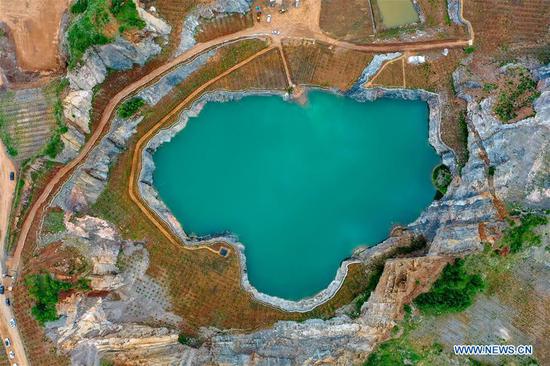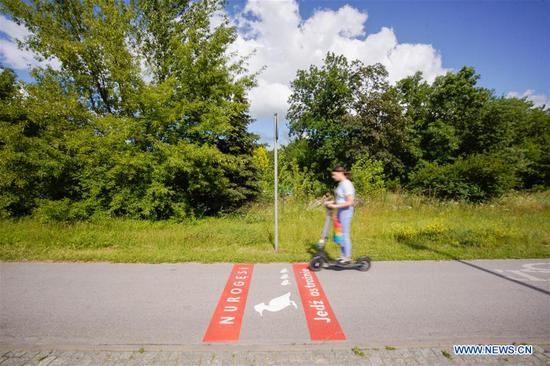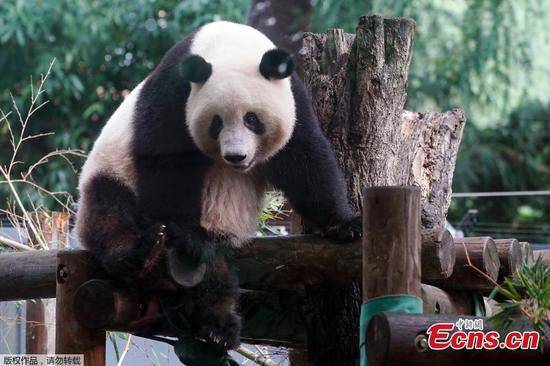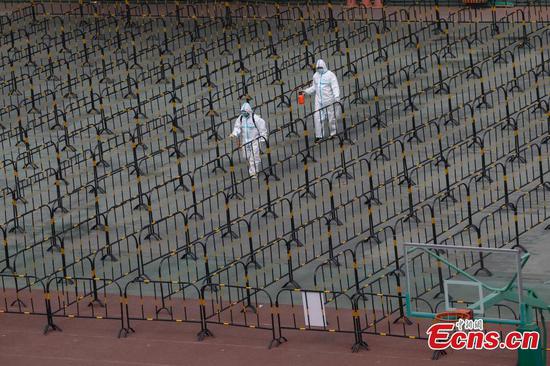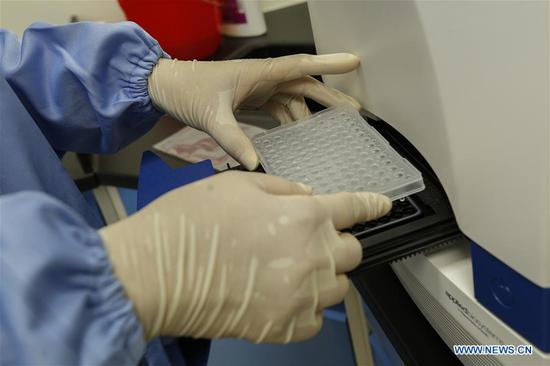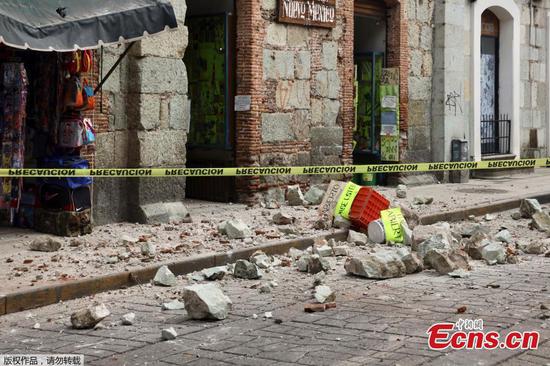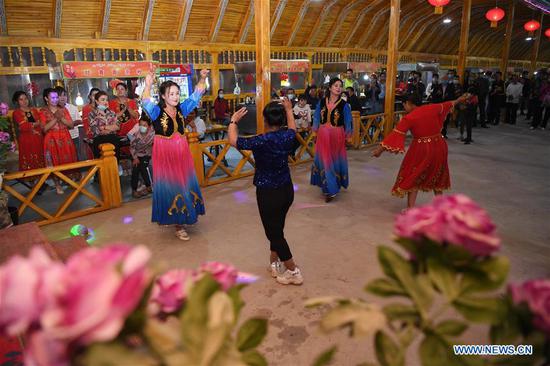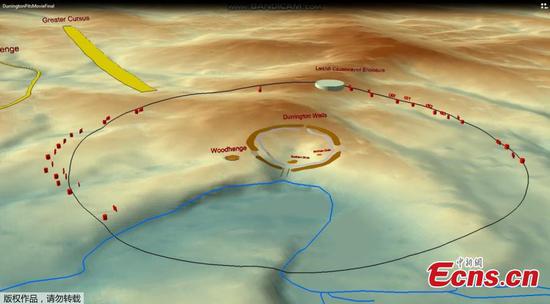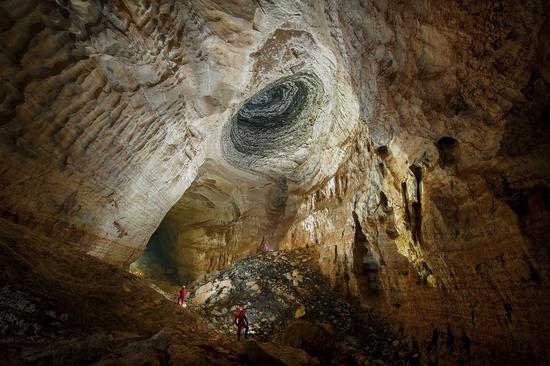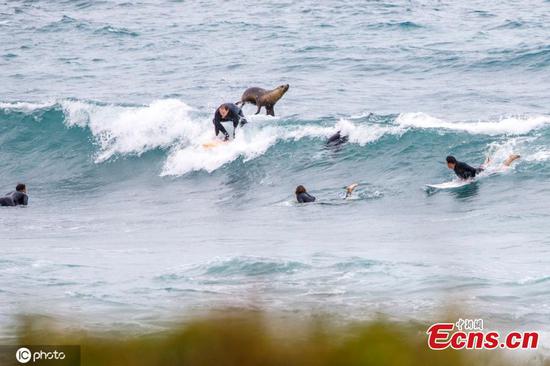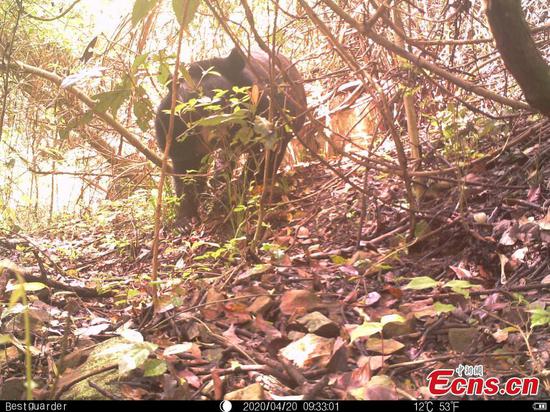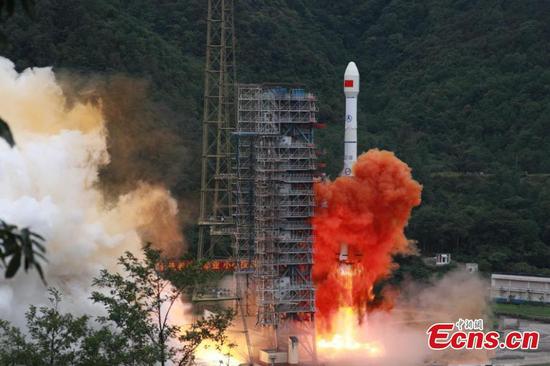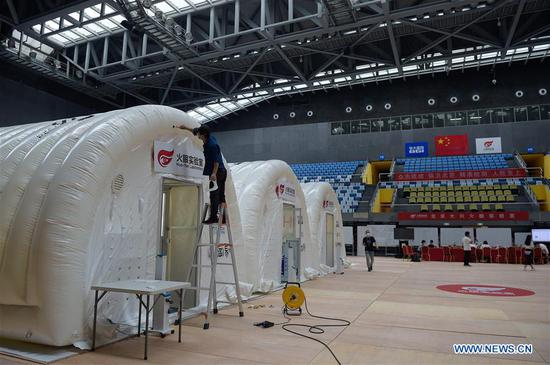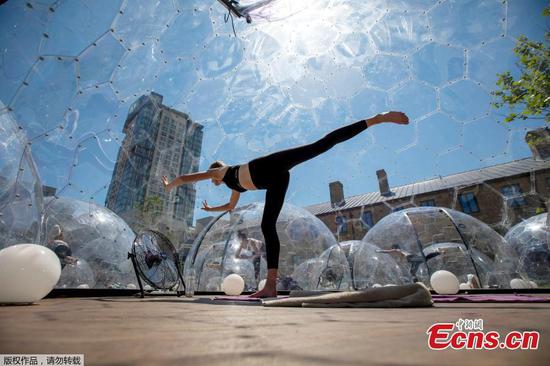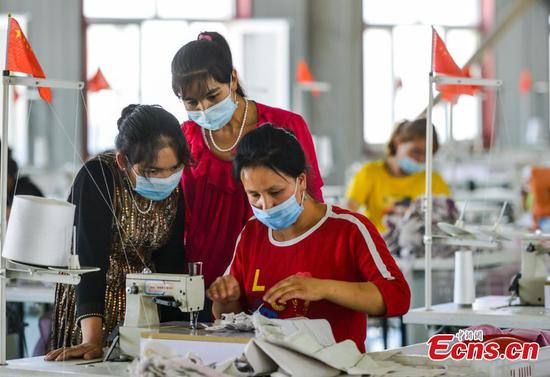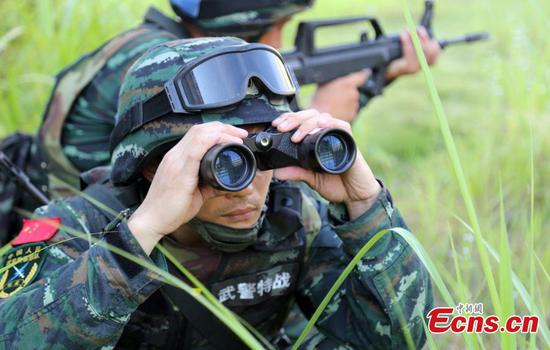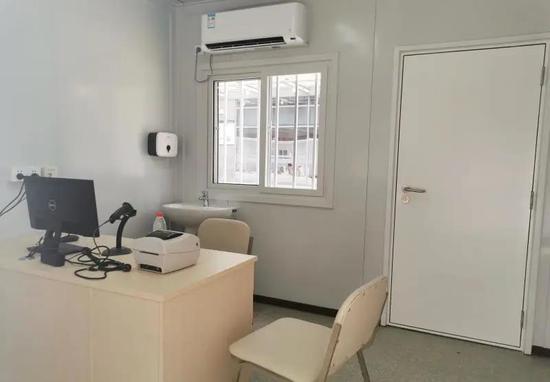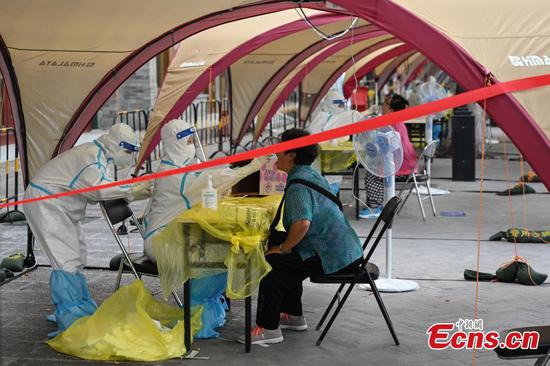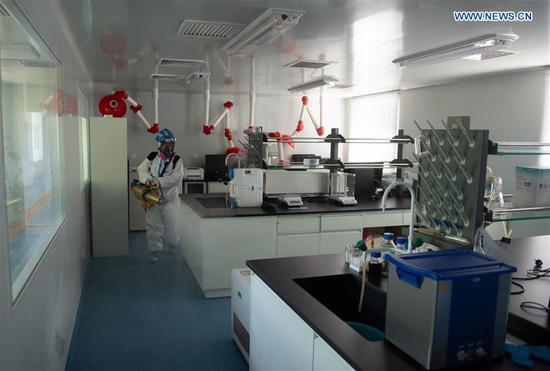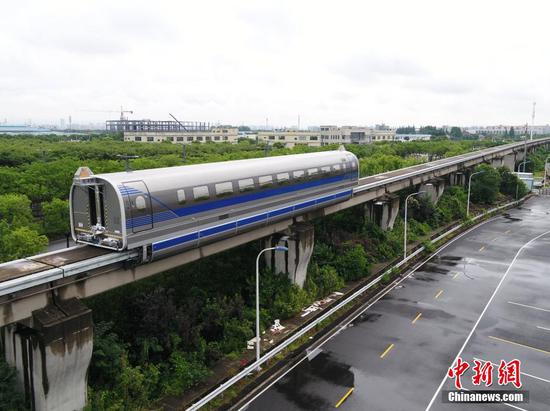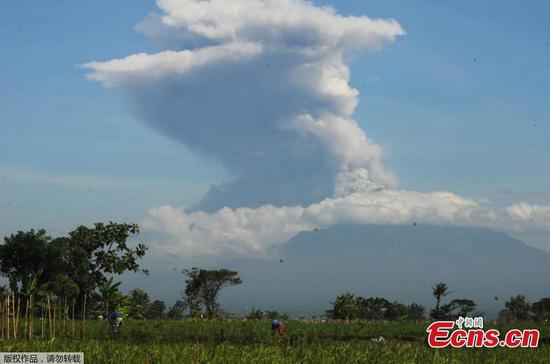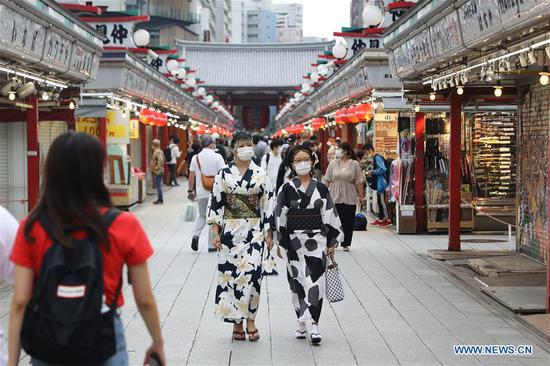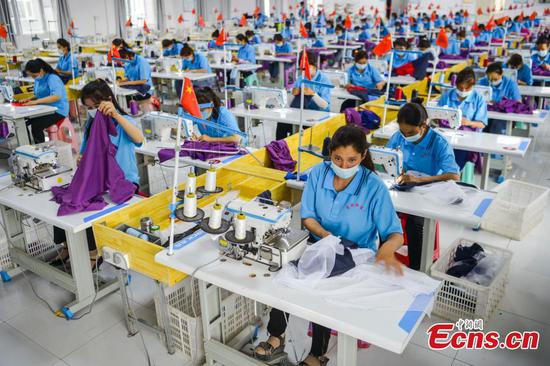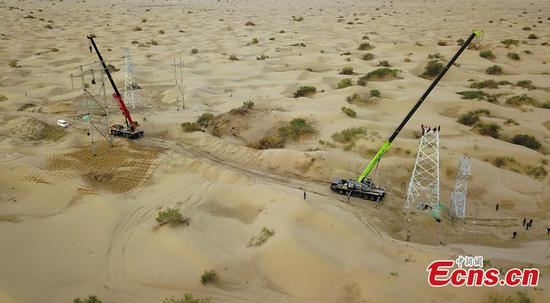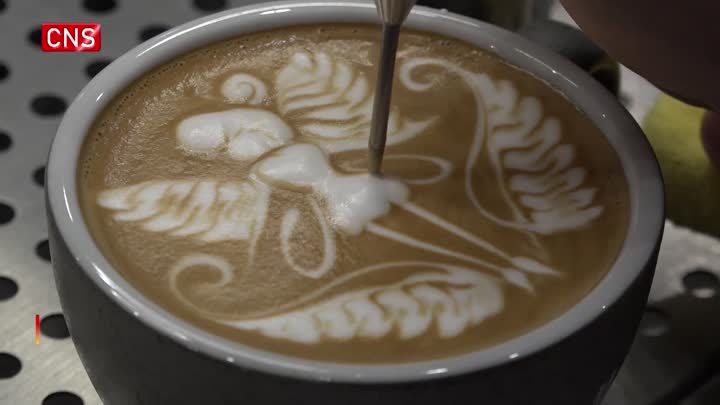China has launched the world's first human trial of its recombinant protein vaccine candidate against COVID-19, which is a new type of vaccine that has shown to be safe and effective in animal models and is easy to mass produce, the vaccine developer said on Tuesday.
The vaccine was approved for phase one clinical trial by the National Medical Products Administration on June 19, according to a statement by the Institute of Microbiology of the Chinese Academy of Sciences. The details of the trial is still unknown.
It is the nation's third vaccine technologies, after the adenovirus vector vaccine and inactivated vaccine, to enter clinical trials in China. Chinese scientists and companies are now testing six vaccine candidates in humans, including one vector, four inactivated and one recombinant protein vaccine.
However, none of these candidates have passed the critical phase three clinical trial, which typically requires large number of recipients and be conducted in regions where the epidemic is still ongoing.
The new vaccine candidate is jointly developed by the institute and Anhui Zhifei Longcom Biopharmaceutical. Scientists from Israel also reported to be working on a recombinant protein vaccine, and the results of their animal testing was published on non-peer reviewed preprint server BioRxiv last week.
A recombinant protein vaccine involves using a specific piece of the virus, such as the spike protein of the antigen, to trigger a protective immune response, according to United States' National Institutes of Health. They are known to provide very strong protection and is very safe, though booster shots might be needed to get ongoing protection.
Some common recombinant vaccines include ones against Hepatitis B, influenza, whooping cough and Human papillomavirus or HPV.
The Chinese recombinant protein vaccine uses the spike protein of the novel coronavirus to elicit an immunological response, the institute said. It has been tested on mice and rhesus macaques and shown to produce highly potent virus neutralizing antibodies.
The viral load in the test animals have also decreased noticeably, reducing the virus's damage to the lung tissues, the institute added. Moreover, the technology used to manufacture the vaccine can be bolstered to industrial scale, with high production output, low cost and relatively strong practicality.
However, the institute stressed that the vaccine candidate still has much work to be done in human trials before reaching the market.









